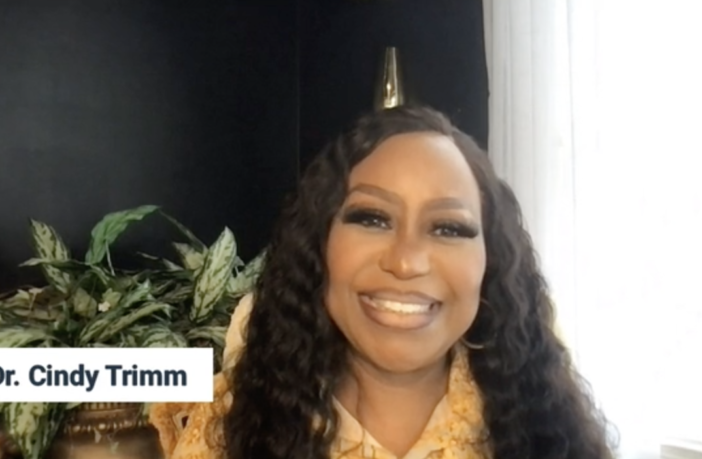Cindy Trimm is a life strategist and psychotherapist who helps the Black community with mental health issues and finds ways to combat depression, anxiety, loneliness, and the substance abuse associated with mental illness. Through her work, Trimm uses mechanisms to help individuals deal with triggers through self-care, mood-boosting, exercise, relaxation, hobbies, and creating a vision for their life.
Trimm spoke with rolling out about mental health in the Black community, being self-advocates, and creating a better mindset around how you want to live.
How can people become advocates for themselves when it pertains to mental health?
There’s this big concept out there called self-mastery, and we have many different levels of it. The fifth level is self-care, but when we talk about self-care, the big question is how [to]care for a self you don’t know. It all starts at the top [with]self-awareness, knowing where you are and where someone else began. That is very, very important. Second [is]self-knowledge, knowing who you are, your strengths, and your limitations. I don’t say weakness, but I do say limitations, [which]is another very important thing. That leads to self-worth, [self-commitment], and self-care. So, where you [end]and someone else begins, you cannot control other people, you can control yourself. You can control and master your own functioning, [and]how you show up in the world where you’re owning your truth, and you’re owning the responsibility for your life, and you’re not playing the blame game. You cannot outperform your [concept]of self nor rise above [your]self-worth, so everything is self, self, self.
Self is the aggregation of your gifts, talents, personality, dreams, [and]vision; I call self the sanctuary of God. That’s where you’re going to hear the God whispers, that’s where you have the God winks when you show up in the world, where you have the opportunity, or what people call chance meetings because people are a mirror to what’s going on on the inside of you. If you want to change what’s [happening]outside of you, you manage what’s [happening]inside of you, your thoughts, and your emotions.
What do you think in the Black community is something that we don’t talk about that affects our mental health?
Before we saw our uncle or the neighbor that we call crazy, and I put it in air quotes, and we’re afraid of being considered crazy, I think when people talk about their mental challenges, it gives us permission to talk about ours. The brain is a muscle, so just like you take care of your physical muscles, you take care of your brain, [and]your spiritual muscle, [which]is your mind. So, just like you will take care of your physical health, you should take care of your mental health.



